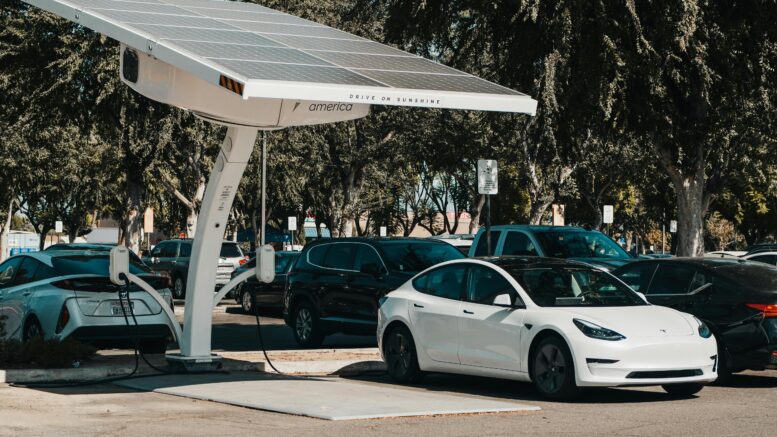The UK faces a number of challenges as it heads to a renewable future including managing the transition towards electric cars.
The shift to electric vehicles (EVs) in the UK is intertwined with the transition to renewable energy and will have implications for both sectors.
The increased adoption of EVs will lead to a substantial rise in electricity demand, necessitating an expansion in electricity generation capacity. To meet this demand sustainably, the UK will need to further invest in renewable energy sources such as wind, solar, and hydroelectric power, however the current capacity could not handle an entire fleet of electric cars.
It is estimated that there are circa 1.1m electric cars in the UK, with around 18% of new car registrations going to EVs. In total thereare 33.2 million cars in the UK, however this doesn’t include lorries, buses or other forms of vehicular transport using traditional internal combustion engines (ICE) on petrol or diesel.
The integration of a large number of EVs will require modernisation of the grid to handle the output.
Smart grids will become essential, and batteries, will be needed to store excess energy generated from renewables for use during peak times.
On the other hand vehicle-to-grid (V2G) technology could enable EV batteries to store renewable energy and supply it back to the grid when needed.
Challenges to address include the development of sufficient charging infrastructure to support widespread EV adoption, which will require significant investment and planning.
Ensuring a stable and reliable energy supply will be crucial, necessitating a mix of energy sources and backup systems to maintain grid stability.

Be the first to comment on "Can the UK’s energy grid manage a transition to EVs?"